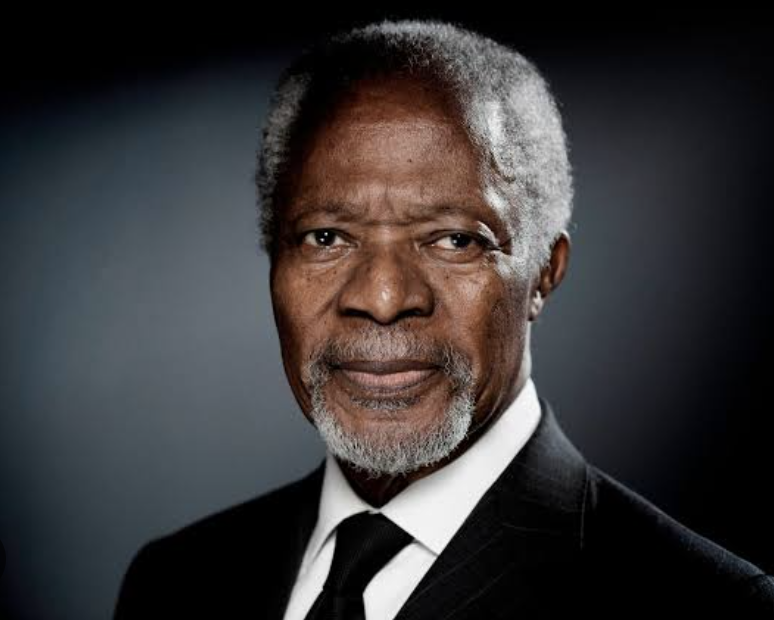Thirteen years after a landmark call for action, Africa has frameworks and pilots, but hunger is stubborn, diets are unaffordable, and climate finance is a rounding error. It’s time to stop debating and start delivering.
By Anthony Muchoki
August 31, 2025
In 2012, Kofi Annan laid out a clear agenda for Africa: invest in smallholders, build climate-smart systems, fix trade rules, and mobilize leadership so no one goes hungry.
As we stand here in 2025, the uncomfortable truth is that while parts of his agenda advanced, the center of gravity never shifted. We’ve had projects and pilot programs; what we needed was a full-system pivot. Hunger moved a little, diets remain unaffordable for most Africans, climate risks have deepened, and financing still misses the farm gate.
Pockets of Progress
Globally, hunger has plateaued, and the number of people unable to afford a healthy diet has fallen modestly. Major institutions now speak the language of climate adaptation, and the evidence on climate threats is mainstreamed into policy. On paper, the African Continental Free Trade Area (AfCFTA) exists to smooth regional trade. And organizations like AGRA have shifted to “systems” language and country-aligned portfolios, reaching millions of farmers—a clear improvement on the fragmented landscape of 2012.
The Grand Failures
But these gains are eclipsed by systemic failures. While global numbers improved, Africa diverged. Roughly 78% of Africans—more than one billion people—still cannot afford a healthy diet, a reality that has deteriorated starkly since Annan’s speech. This is not a margin-of-error problem; it is a systems failure.
Worse, climate finance for the small-scale farmers who need it most has fallen by 44% and now represents just 0.8% of total climate funding. It is a rounding error against an existential threat. The decade-old Malabo commitment for governments to spend 10% of their budgets on agriculture remains unmet by most. And despite the AfCFTA, the “ban reflex”—export restrictions during crises—repeatedly undermined the predictable markets Annan called for.
Where We Have Lost Ground
In some areas, we have actively regressed. Conflict-driven hunger has surged, with food increasingly used as a weapon while humanitarian pipelines shrink. The fertilizer and food price shocks of recent years exposed the profound fragility of our dependence on external inputs.
The verdict is clear: Annan’s blueprint was right. Our execution was not. We built frameworks but failed to install the plumbing for universal access: affordable nutritious foods, reliable extension services, and shock-proof trade. The direction changed; the pace and scale did not.
A 24-Month Emergency Agenda
The time for reports is over. The next two years must be about disciplined execution.
- Make Food Affordability the Only Metric That Matters. Tie every major agriculture dollar to a measurable reduction in the cost of a healthy diet. This means prioritizing investment in fruit, vegetable, and protein supply chains—not just staple grains. Institutionalize monthly tracking of diet affordability and use social protection like school meals and cash transfers to close the price gap for the most vulnerable.
- Force Climate Finance to the Farm Gate. We must set a hard target: commit that at least 5% of all climate finance flows directly to small-scale agrifood systems by 2027, up from the current 0.8%. This requires creating ring-fenced funds for on-farm adaptation—from water harvesting to drought-tolerant seeds—and standing up national guarantee facilities to de-risk the smallholder lending that makes it all possible.
- Fix the System’s Broken Plumbing. We need to 10x our last-mile advisory services, blending digital tools with village-based agents to finally shrink the abysmal farmer-to-extension agent ratios. We must use the AfCFTA’s mechanisms to enforce trade rules and make export bans a time-limited, last resort. And we must fund African R&D to develop the climate-resilient indigenous crops that will feed the future.
The Final Verdict
Annan didn’t ask us to invent a new vision; he asked us to execute the one we already had. The frameworks are here—AfCFTA, CAADP/Malabo, climate-smart playbooks. What’s missing is the political will to fund and enforce them at the only scale that counts: the household where a healthy diet is either affordable or not.
Until that changes, we will still be writing “progress reports” while millions skip meals. The next two years must be about affordability, farmer-level climate finance, and frictionless regional markets—delivered, not debated.
ajm.muchoki@gmail.com
